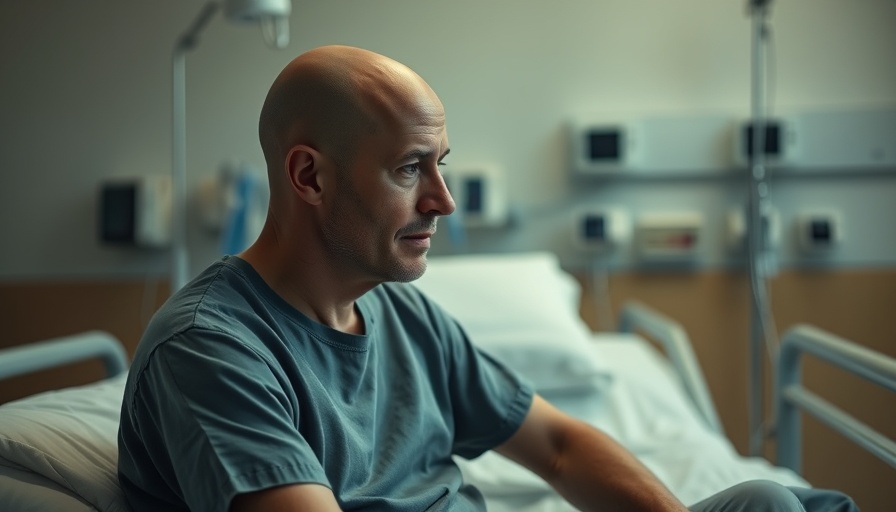
Cancer's Toll: Beyond Physical Decline
Cancer doesn't just attack the body; it invades the mind. Many patients suffering from advanced cancer experience profound apathy, known as cachexia, which affects approximately 80% of late-stage cancer patients. This syndrome leads not only to weight loss but also to the disconnection from loved ones and the loss of will to engage in life, leading to complications in treatment. The conventional view has been that psychological responses to physical frailty produce such withdrawal. However, groundbreaking studies hint that cancer itself can manipulate specific brain functions.
Revolutionary Research in Mouse Models
Recent research conducted by neuroscientist Adam Kepecs and his team revealed a chilling possibility: cancer actively hijacks a critical brain circuit devoted to motivation. By employing advanced technologies to investigate the activity in mice suffering from cancer cachexia, the researchers were able to identify how tumor growth and the accompanying inflammation disrupt motivation-related signals in the brain. This provides hope that understanding these mechanisms may inform new therapeutic strategies to combat cachexia and restore motivational drive.
The Brain's Inflammation Detector: A Fascinating Discovery
Within the brain lies a small region called the area postrema, identified as an inflammation detector. This region, situated just beyond the blood-brain barrier, becomes activated by inflammatory cytokines released by tumors. As the tumor grows, its influence expands, significantly diminishing the motivation of patients. The newfound knowledge about how this area signals the body's state opens pathways for potential treatments that directly address this motivational breakdown.
Implications for Treatment: Addressing Mind and Body
Understanding the complex interactions between cancer and brain function calls for a holistic approach to treatment. As we learn more about cachexia as an integral part of cancer, we must confront the dual needs of physical care and emotional well-being. Innovative strategies could emerge from this research, empowering patients to regain their motivation and reconnect with their lives. Departments focused on both health and wellness may explore how lifestyles can aid recovery, reinforcing the need for comprehensive support systems that consider both physical and mental health.
Community Health and Wellness in Focus
The findings concerning cancer's manipulative impact on mental health underscore the importance of community health initiatives. As patients navigate their conditions, access to resources that foster a sense of belonging and well-being is essential. Wellness events and programs aimed at reengaging individuals with their passions and community can make a significant difference in their healing journey. For those in San Antonio and beyond, local health and wellness centers may offer vital support and healing opportunities for cancer patients and their families.
A Future of Hope: Changing the Narrative
As researchers continue to unravel the mysteries of cancer's effects on motivation, the narrative surrounding cancer treatment is poised to shift. Enhanced understanding leads to novel interventions that restore cognitive and emotional health, raising the possibility of a future where cancer patients can reclaim their drive for life. It is vital that we advocate for research and initiatives that view cancer not only as a bodily affliction but as an adversary that attacks the very essence of what it means to live fully.
 Add Row
Add Row  Add
Add 




 Add Row
Add Row  Add
Add 


Write A Comment